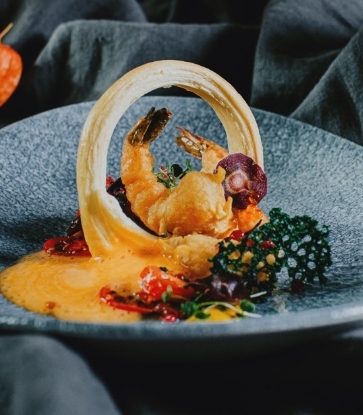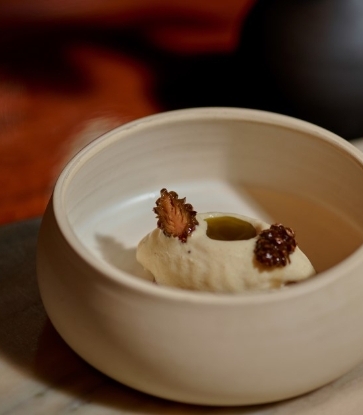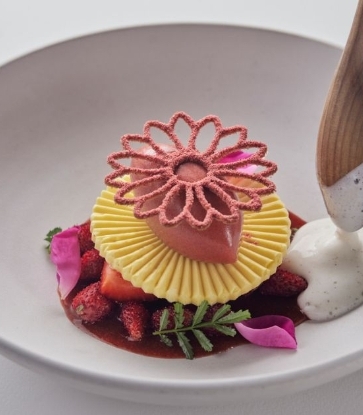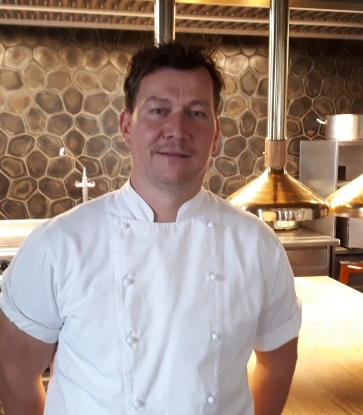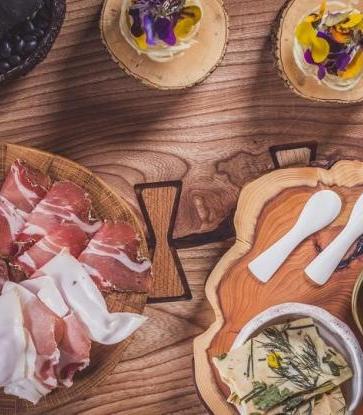Alex Greene is Head Chef of Deanes EIPIC in Belfast, Northern Ireland
(One MICHELIN Star in the 2016-2020 Guides)
Billy Boyter is Chef-Owner of The Cellar in Anstruther, Scotland
(One MICHELIN Star in the 2016-2020 Guides)
Richard Craven is Chef-Owner of The Royal Oak in Whatcote, England
(One MICHELIN Star in the 2020 Guide)
Early Memories
How did it all start for you?
Alex:
I got my first job at 11/12 years of age washing pots in a local restaurant. From there I got hooked and addicted to the environment I was working in: the smells, the noise, the atmosphere, the buzz – everything that comes with being in a busy, well-run kitchen.
I moved from pot wash to food prep duties very quickly and by the age of 15 I was Sous Chef. I suppose I never really thought about becoming a chef, not even when it was happening, I just felt that I was doing something that I loved and I was excited to see where it would take me.
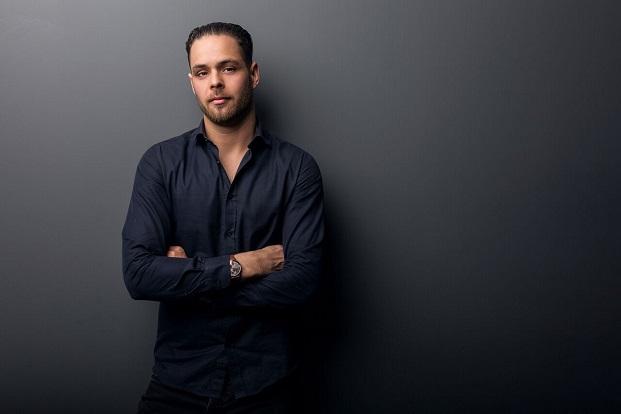
Billy:
If you'd told me when I was young that I was going to be a chef I would have probably laughed at you. I fell into cooking completely by chance after leaving school early. I wasn't academic by any means but I was very artistic and extremely competitive – traits I didn’t know back then would really benefit me in the future as a chef.
My family had been fishermen in the East Neuk of Fife, as far back as the 1700s, and I'd always thought that was the path I’d follow. But with the decline of the fishing industry and many of my family taking jobs offshore in the oil industry, fishing wasn't a family tradition that I was going to be able to continue.
Growing up with a fisherman for a dad definitely had perks. There won't be many who can say they grew up on a diet of skate wings, lemon sole and halibut. I remember the more unusual things he would bring home from the sea as well: cod milts and roe – always just poached and spread on buttered toast with salt and cracked pepper. I didn't know it at the time but the appreciation and respect I had for the sea and what it gives us definitely shaped the way I would think about food and the kind of chef I wanted to be.
Richard:
I was brought up mainly in rural areas, often in cottages on farmland. My father had a small vegetable patch when I was young but it was through financial necessity rather than a desire to eat well, although thankfully the two went hand in hand and we enjoyed simple homemade dishes full of flavour.

My grandparents still grow their own vegetables. My Grandmother is an excellent cook and a generous host and always has homemade cakes and scones with her jam ready “on the off-chance you drop in”. Luckily we live close enough to be invited regularly and we’re often treated to a fresh salad with tomatoes grown in the garden or a pepper stuffed with herbs from the greenhouse and, on my birthday, a trifle or crumble featuring fruit from the garden.
My first experience of cooking – or rather prepping – in a professional kitchen was as a part-time Kitchen Porter at the Italian-owned Seymour House in Chipping. I quickly realised if everything was clean and tidy I would be given something more interesting to do. I really enjoyed the environment and ended up working around 35 hours a week whilst still in education, before going full-time at eighteen. It was initially supposed to be a gap year before university but actually saw me work my way up from Kitchen Porter to Sous Chef over a five year period, despite having no formal culinary training.
Goals and Achievements
Fast forwarding to where you are today… are there things you wish you’d done differently?
Alex:
Looking back over my career, there are some things I’d do differently, but that’s part of being a chef. Nothing will ever be perfect, nothing will ever be 100%, but the important thing is that I am always pushing for perfection, always trying to go in the right direction, even if I never feel I achieve exactly what I want at least I know that it is the best it can be.
Billy:
I don’t think I would have changed or done anything differently in my career. “Whit’s fur ye’ll no go past ye” is something my parents have always said to me, and I think I’ve always been a bit of a believer in fate. Coming back to my hometown and opening my own restaurant feels like it was meant to be.
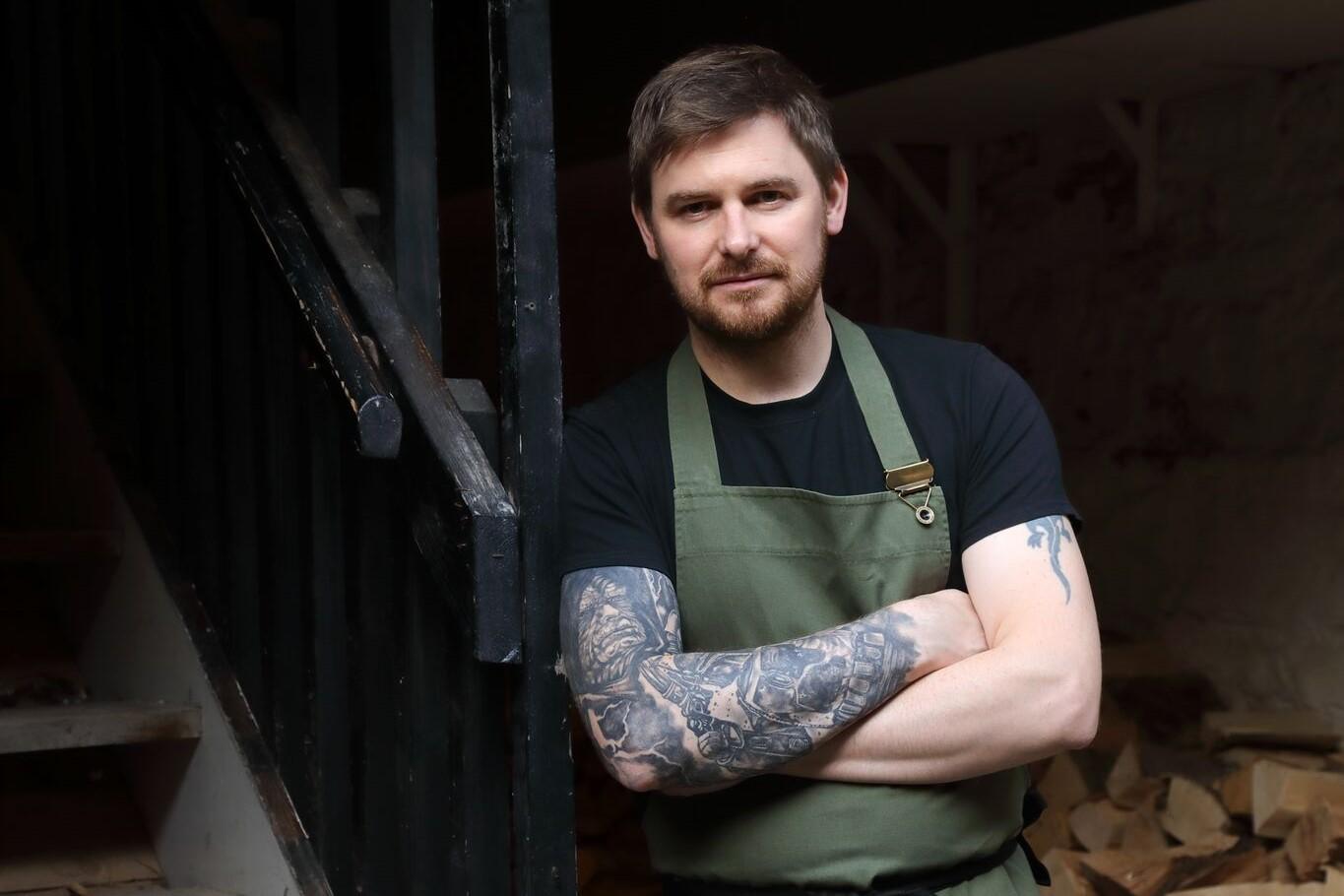
Richard:
If I was to do anything differently it would probably be to spend more time in better kitchens. I worked for almost 10 years for other people but for less than two years at a level that actually showed me what I wanted to do going forward – although in some ways this has probably made it easier for me to find my own style and flavour combinations.
What other goals do you want to achieve?
Alex:
I believe it is important to always look ahead and get a clear direction of where you are going and set yourself targets and achievements. I want to keep pushing forward in my career, maybe one day own my own restaurant, but for now I’m focused on my current position as Head Chef at Deanes EIPIC and retaining our Michelin Star.
Billy:
I don't really set myself goals as such anymore. All I want is for the restaurant to keep evolving and improving. As long as that continues I'm happy.
Richard:
Our next goal with the Royal Oak is to build our team up. We’re looking at working with local schools and colleges to try and get the next generation involved. We have one part-time kitchen assistant starting an apprenticeship this summer. We quite simply want to try to get better at what we do season after season, giving our guests a memorable and enjoyable experience.

The Next Generation
What advice would you give to young chefs?
Alex:
If you want to take your craft seriously and if you want to succeed and be the best chef you can be, you need to work in the best kitchens with Michelin-Starred chefs. You need to put your career in the hands of chefs you know you can learn from, chefs at the top of their game, chefs that are creating trends, not following them. It’s a tough career to be in and many sacrifices will have to be made if you want to make the best of it.

Billy:
All I would say is “Work hard, be humble and be kind”.
Richard:
Read and absorb as much as you can about the hospitality industry, and eat out as much as you can. I have pages in notebooks listing dishes that I have eaten, in order to try and understand what made someone else’s dish great. It’s easy to be critical of someone else’s dish from a distance on Instagram but the most important thing with a dish is the flavour: does it eat well, how can it taste better, do you need to add something or, conversely, take something off the plate?
A ‘stage’ is great but nothing will teach you as much as running a section in a kitchen. Once you are proficient on a section, ask if it’s possible to move onto another to continue your development within your workplace before looking to leave; most head chef’s would rather develop someone within their team given the opportunity – however don’t expect to do every section in the kitchen in six months either.
It takes time to learn how each chef or restaurant cooks (keep a small notebook on you at all times), then in your next job someone else will probably tell you to do it a completely different way. I feel the trick is to take all of this on board as you go along and when you come to write your own menus or open your own place, you distil all the bits you’ve learnt and then choose which direction to go in yourself.
Read the rest of our ‘Spotlight on Chefs’ series here:
Aktar Islam, Sally Abé, Stephen Stevens and Taylor Bonnyman
Marguerite Keogh, Mark Birchall and Rob Krawczyk
Richard Swale and Eric Matthews





